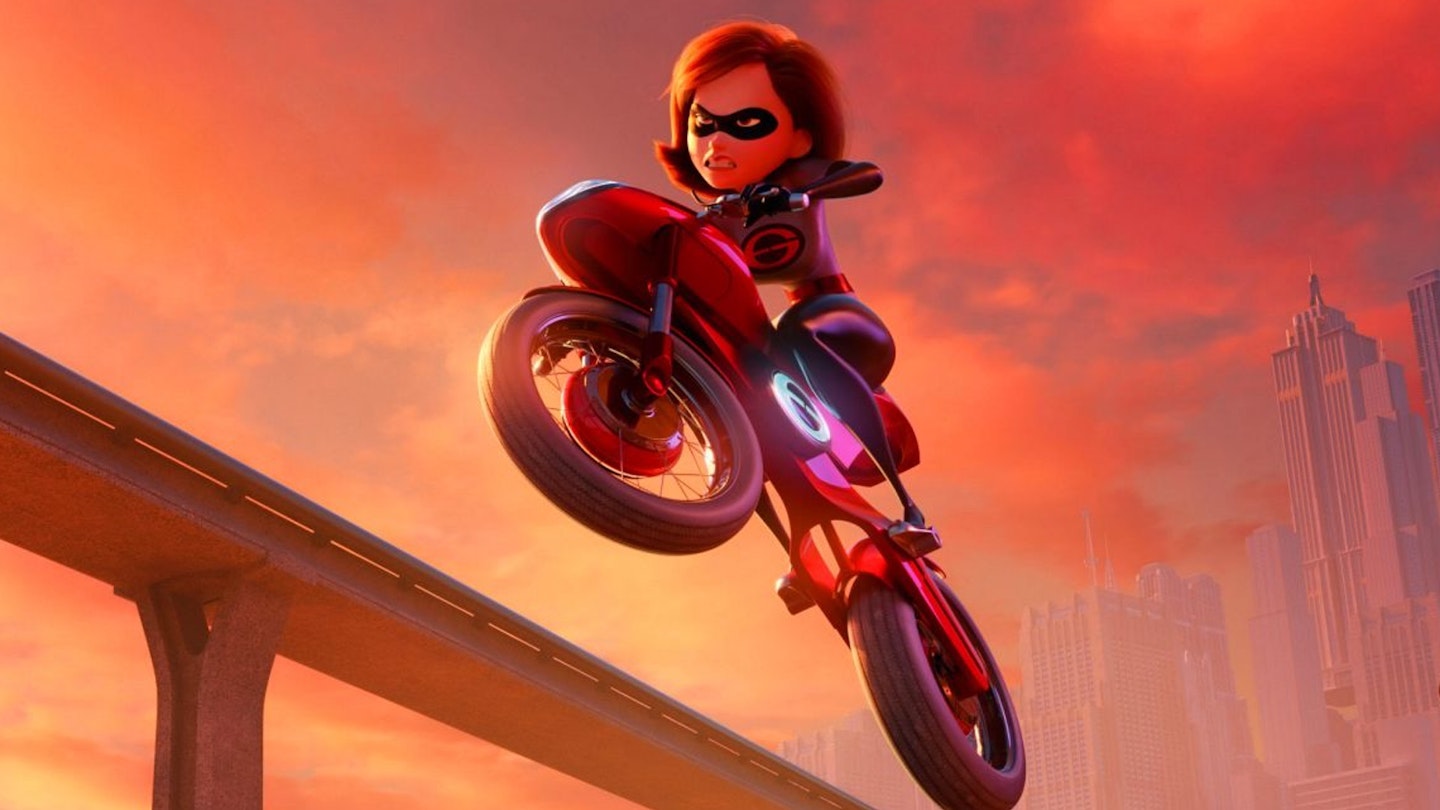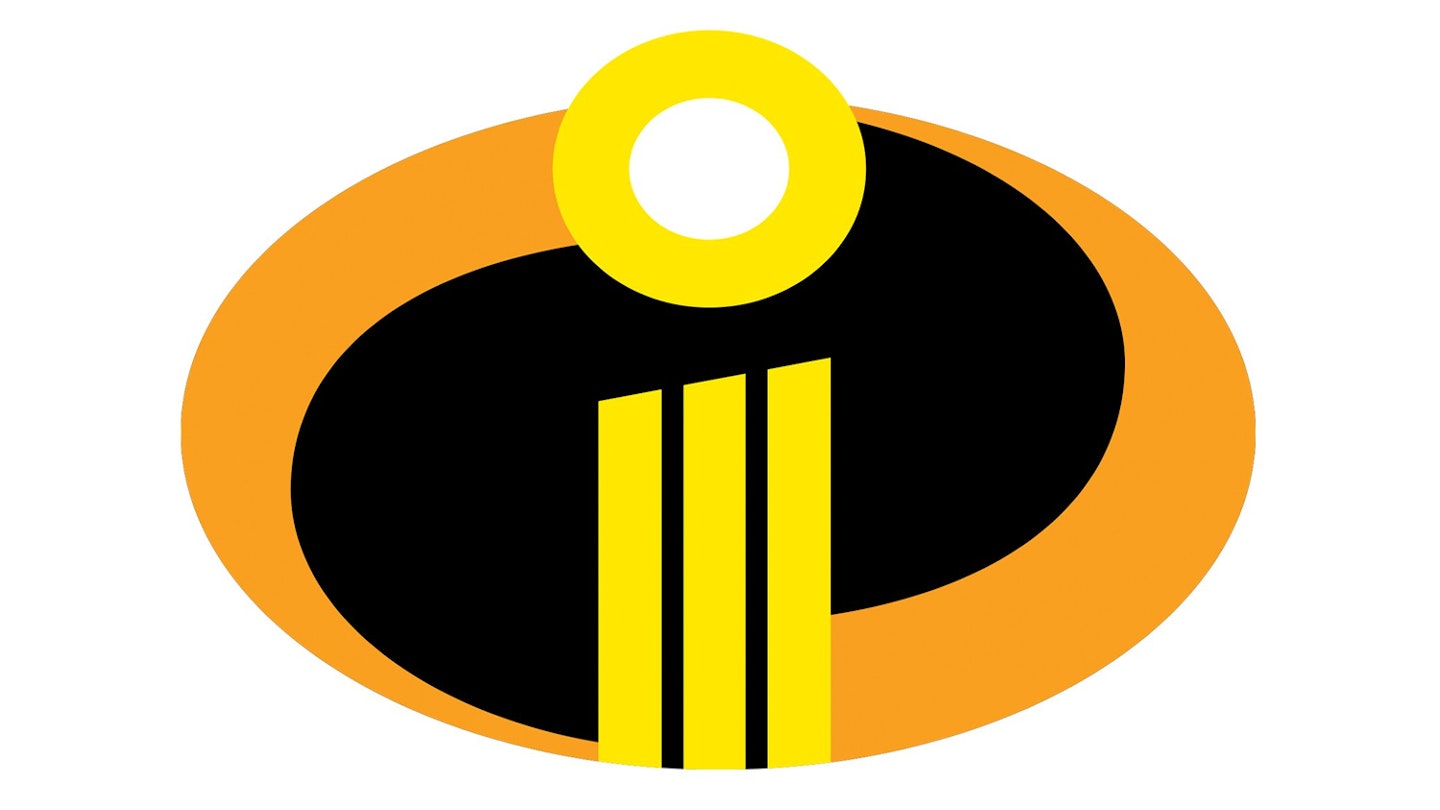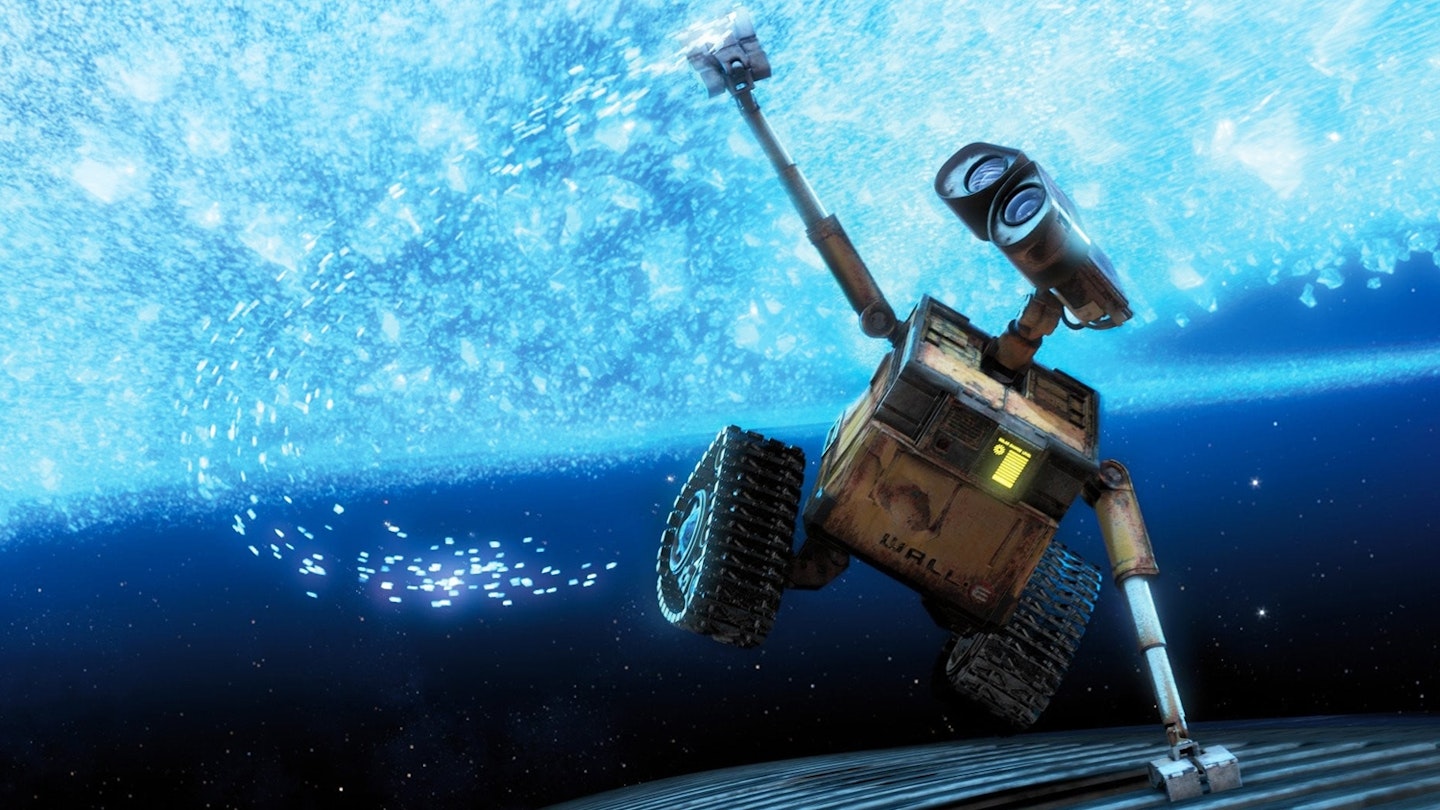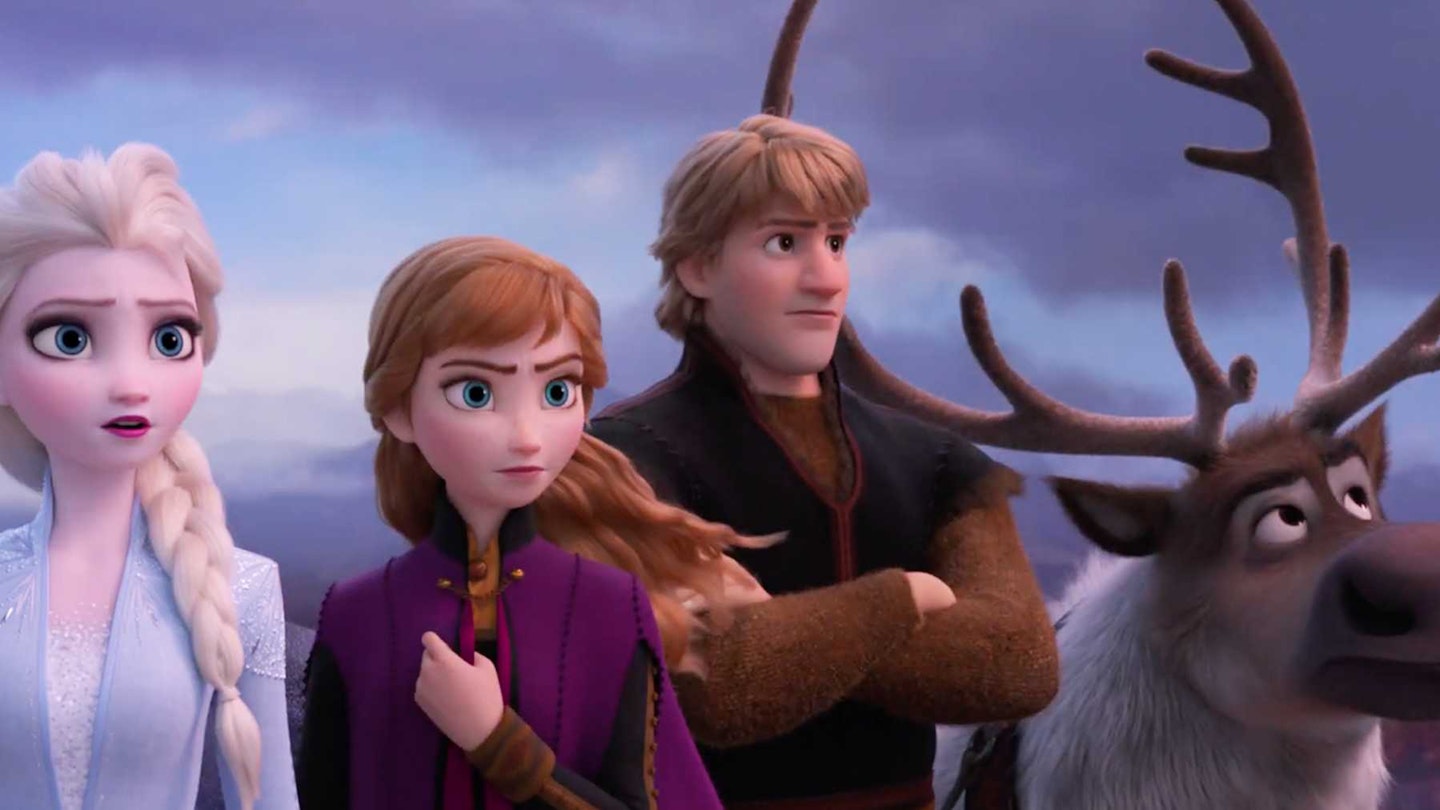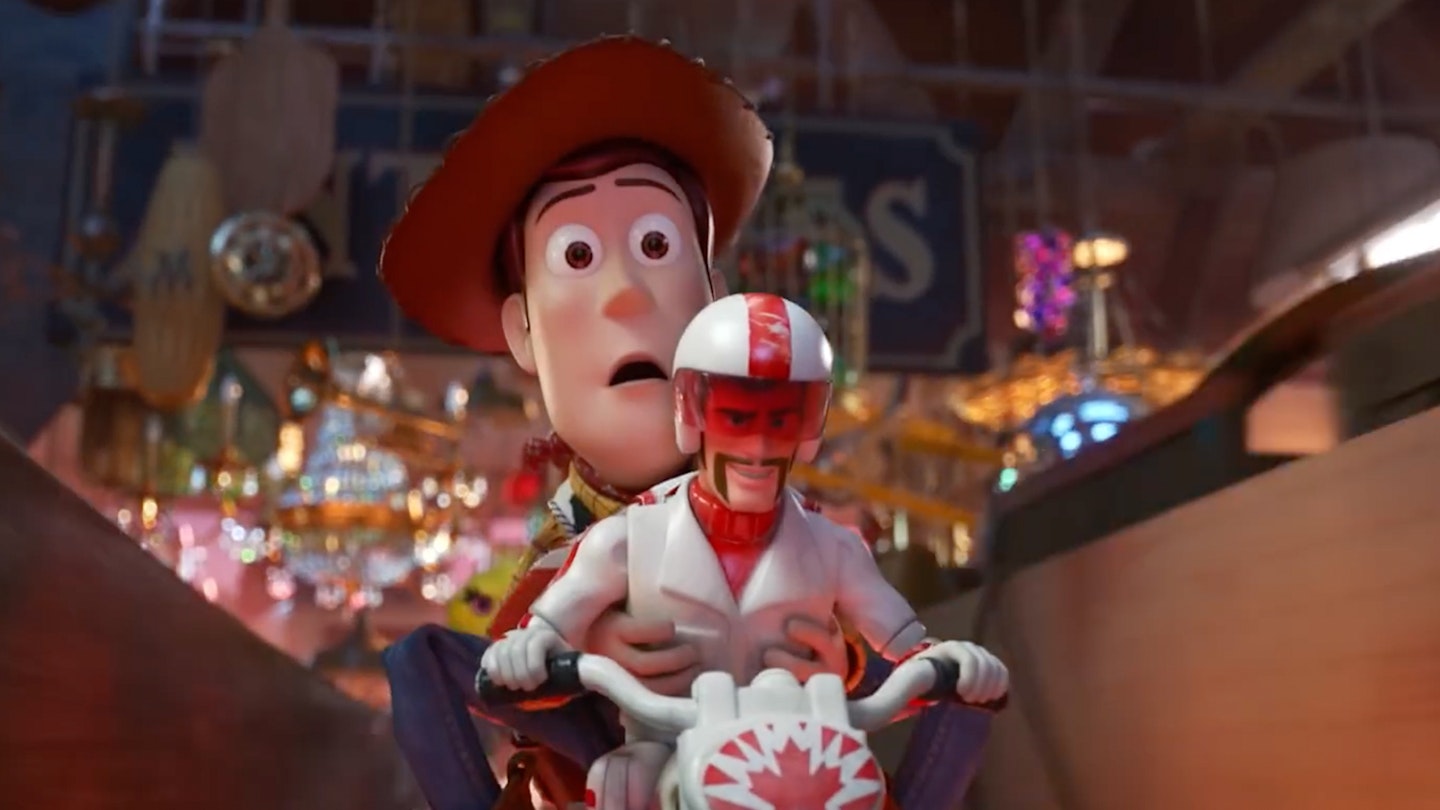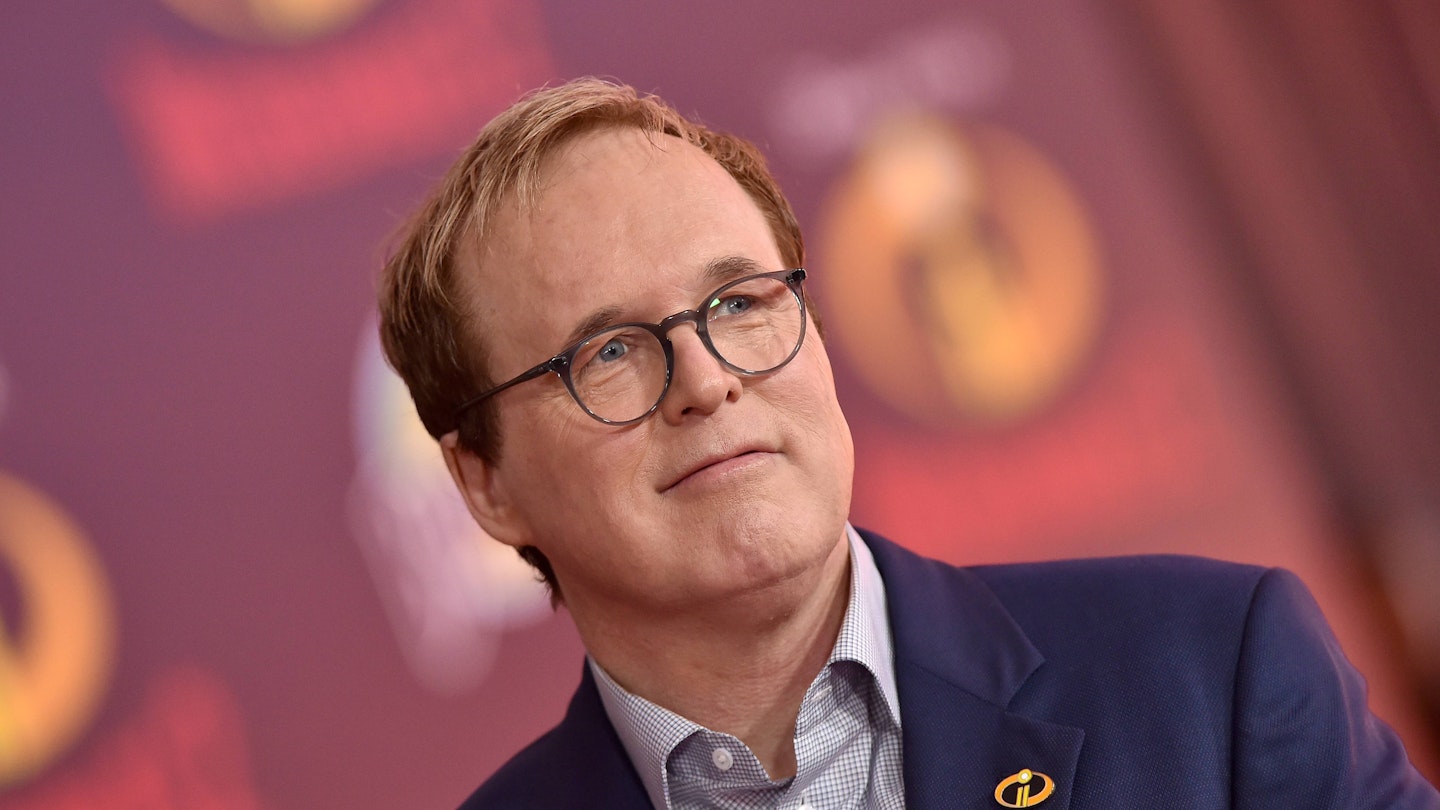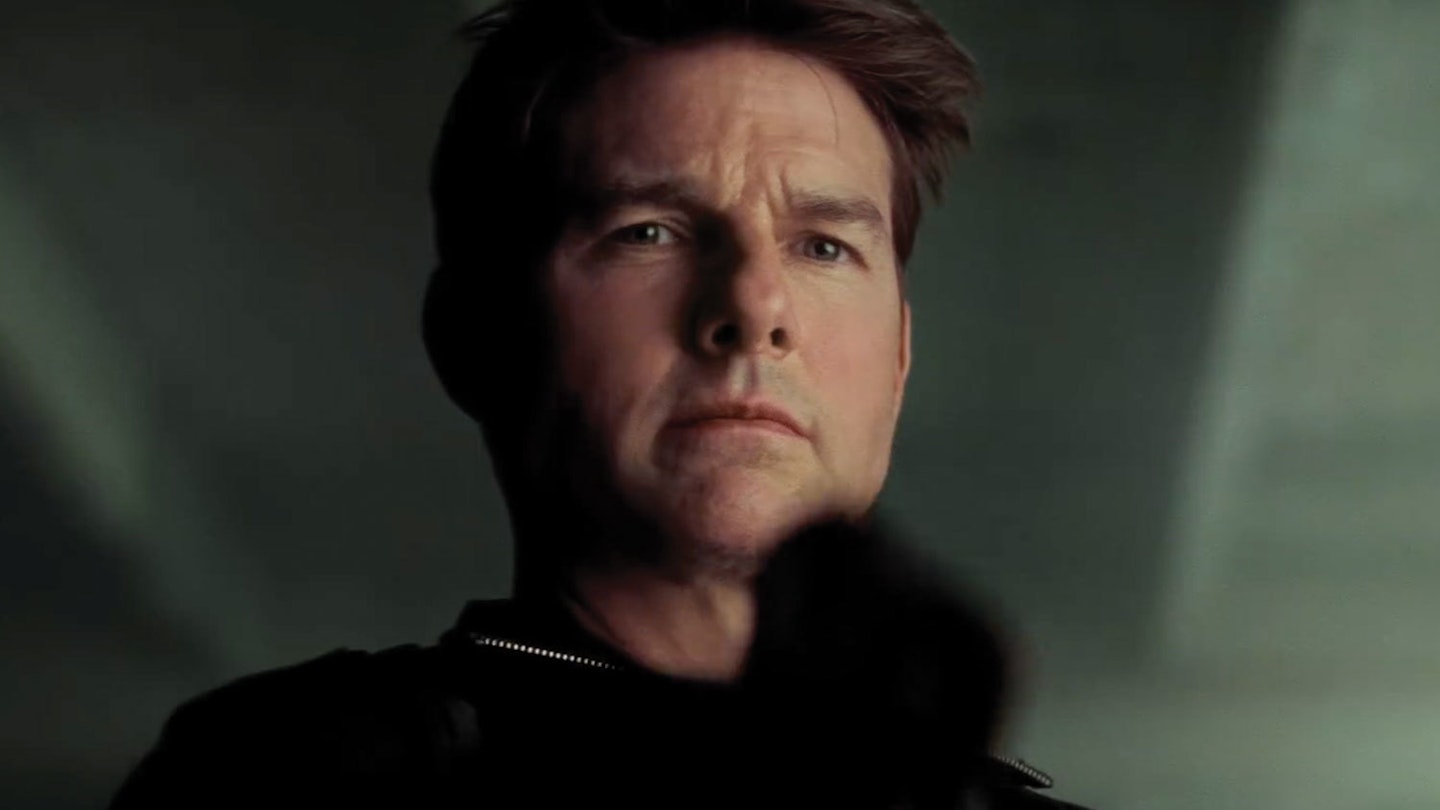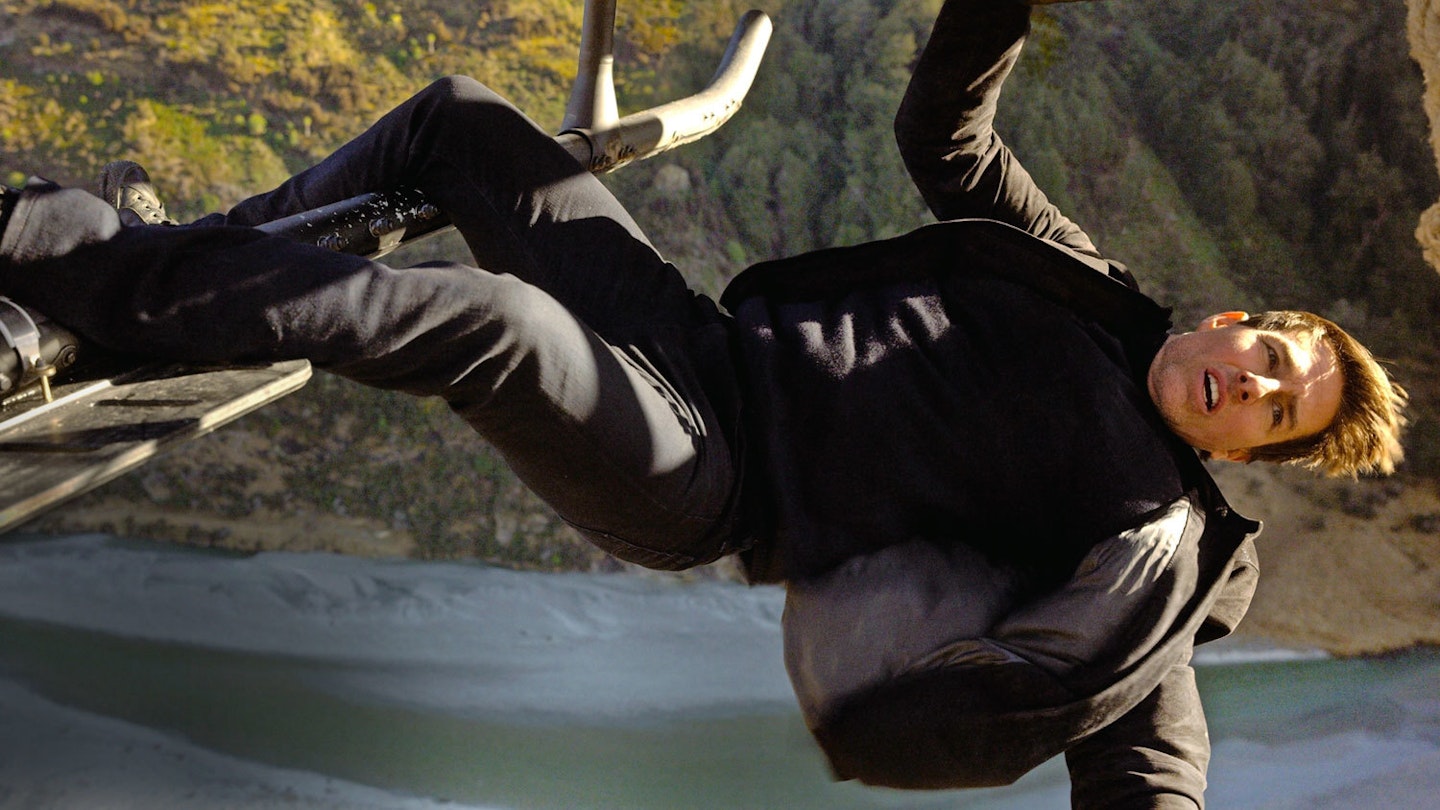14 years have passed since we last saw the Incredibles, the Pixar superhero family to rival the likes of the Richards or the Els — but as far as returning writer/director Brad Bird is concerned, no time has passed at all. The first movie’s epilogue now forming the second movie’s prologue, the Underminer (voiced by Pixar good luck charm John Ratzenburger) is still wreaking havoc on Metroville, and the Incredibles are still doing everything within their superpowers to stop him. This instant continuation is, in a way, a deft way to avoid acknowledging cinema’s recent superhero boom — there is no wink or nod here to the lucrative cinematic universes that have sprouted up in the interim. In the Incredibles’ universe, of course, the golden age of superheroes has been and gone.
The Incredibles are back — it’s like they never left.
In some respects, you almost wish things had moved on a little further. After that blinding opening, Incredibles 2 initially feels overcautiously tied to the beats of the first film: supers are still illegal, and our heroes are still relying on mysterious, benevolent billionaires to keep them employed. But there are key differences: here, the wealthy benefactors are brother-and-sister Evelyn and Winston Deavor, who each have their own reasons for helping the family overcome the status of second class citizen. The Deavors propose a bit of PR spin, providing resources, lobbyists and plenty of insurance to rehabilitate their public image, with Elastigirl, whose stretchy powers make her the least destructive of the old guard, as the figurehead.
So begins a new mission — but, as the rooftop barbeques of The Fast & Furious have taught us, it all comes down to family. Juggling crime-fighting duties with domestic obligations are an opportunity for neat jokes (Helen laments missing out on baby Jack-Jack’s first power, as she would his first word), but also the complex dynamics of a nuclear family that’s always seconds away from a new crisis. With Helen as the new breadwinner, Bob is left to be a “substitute parent”, and he has his giant hands full with a moody teenage girl, a frantic pre-teen boy, and a wildly unpredictable baby.
Jack-Jack’s hilariously uncharted polymorphous powers steal more than one scene, but the film finds time for quieter moments, as when the parents worry about taking a new job in between mouthfuls of toothpaste, in scenes that families everywhere will keenly recognise. Marrying the miraculous with the mundane has been the real achievement of Pixar in general and these characters in particular, and it’s a particular highlight here.
If there’s a gripe to be had, it’s that perennial superhero movie ailment: the underwhelming villain. Unlike the first movie, which boasted the disgruntled former fan Syndrome (a brilliantly well-rounded foe), this has the elusive Screenslaver, a baddie whose motivations are foggy, whose introduction arrives fairly late in the film, and whose true identity is telegraphed so heavily that even nippers will see it coming.
But it all moves at such joyous speed and energy that you may not care. Bird’s gift for wildly kinetic, ingenious action remain undimmed, and even the wackier moments — a mother-of-three being used as a human trampoline, for example — offer the weight of wit and meaning behind them.
Kudos must go to Michael Giacchino's score, which elevates the film immensely with more John Barry-esque ’60s big band swagger. (Be sure to stay to the end credits to hear the hero’s original theme tunes. Frozone’s, naturally, is ice-cool.) The Incredibles are back — it’s like they never left.
